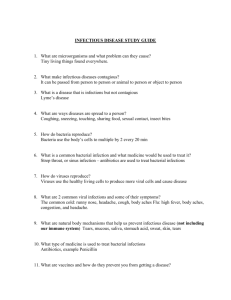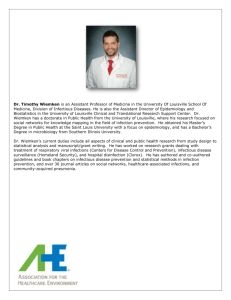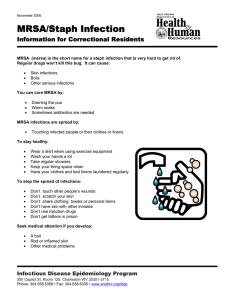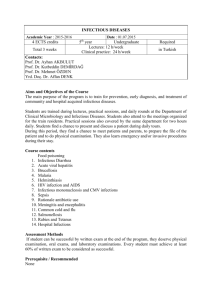Document 12913551
advertisement
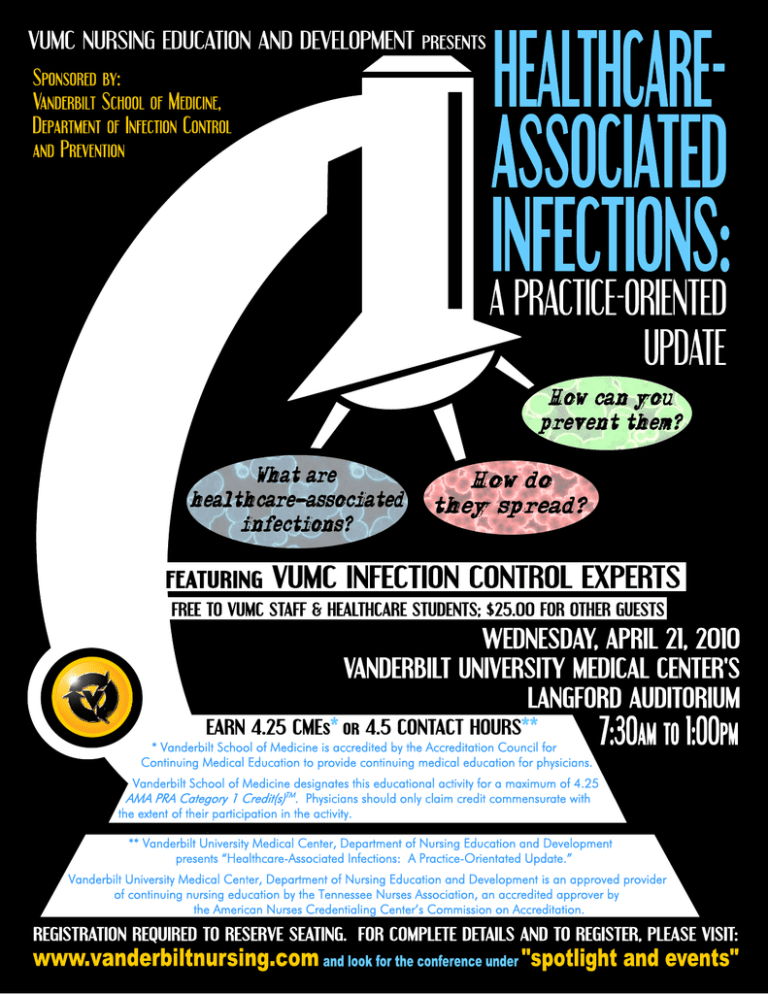
* Vanderbilt School of Medicine is accredited by the Accreditation Council for Continuing Medical Education to provide continuing medical education for physicians. Vanderbilt School of Medicine designates this educational activity for a maximum of 4.25 AMA PRA Category 1 Credit(s)TM. Physicians should only claim credit commensurate with the extent of their participation in the activity. ** Vanderbilt University Medical Center, Department of Nursing Education and Development presents “Healthcare-Associated Infections: A Practice-Orientated Update.” Vanderbilt University Medical Center, Department of Nursing Education and Development is an approved provider of continuing nursing education by the Tennessee Nurses Association, an accredited approver by the American Nurses Credentialing Center’s Commission on Accreditation. This continuing education program offers a multi-disciplinary overview of major healthcare-associated infections, with a focus on causative microorganisms (including antibiotic resistant bacteria) and current anti-microbial treatments. Our infectious disease experts share concepts of transmission, preventive strategies, and treatment guidelines followed by a panel discussion of infections that complicate the clinical course of all hospital patients. REGISTRATION ANTIBIOTICS 101: WHAT DO I NEED TO KNOW? Effects of antibiotics used in clinical settings with emphasize on optimum patient outcomes. presented by Sloan B. Fleming, PharmD, BCPS Clinical Pharmacy Specialist, Trauma MRSA: THE CHANGING PICTURE MRSA lifecycles, mutations, and the risk to healthcare workers. presented by Greg Wilson, MD Asst. Professor, Pediatric Infectious Diseases, Children’s Hospital Epidemiologist BREAK MULTIDRUG RESISTANT ORGANISMS: IT'S NOT JUST ABOUT MRSA Antibiotic-resistant Gram negative pathogens and their impact on healthcare environments. presented by Titus Daniels, MD, MPH Asst. Professor of Medicine – Infectious Disease, Assoc. Hospital Epidemiologist HOW GERMS SPREAD: UNDERSTANDING THE BASICS Mechanisms of transmission for infectious microorganisms in healthcare workers/environments. presented by Thomas Talbot, MD, MPH Asst. Professor of Medicine & Preventive Medicine, Chief Hospital Epidemiologist HOW GERMS SPREAD: WHAT CAN I DO TO PREVENT INFECTIONS IN MY PATIENTS? How healthcare workers can prevent or minimize the incidence and spread of infections. presented by Vicki Brinsko, RN Director and Infection Preventionist, Department of Infection Control and Prevention BREAK WHY DO SOME ANTIBIOTICS FAIL? STRATEGIES TO IMPROVE SUCCESS Understanding why antibiotic therapy fails and how to improve efficacy. presented by Patty Wright, MD Medical Director, Infectious Diseases Outpatient Clinic Asst. Professor, Infectious Disease – Medicine (Adult) CLINICAL INFECTIONS: CRITICAL ISSUES PANEL DISCUSSION with Vicki Brinsko, RN Cori L. Nelsen, PharmD, BCPS, Clinical Pharmacy Specialist, Infectious Diseases William Schaffner, MD, Professor and Chair, Department of Preventive Medicine Professor of Infectious Diseases, Department of Medicine Thomas Talbot, MD Our experts will discuss current issues associated with hospital infections and actions for prevention in clinical practice. FINAL QUESTIONS/EVALUATIONS/ADJOURN
